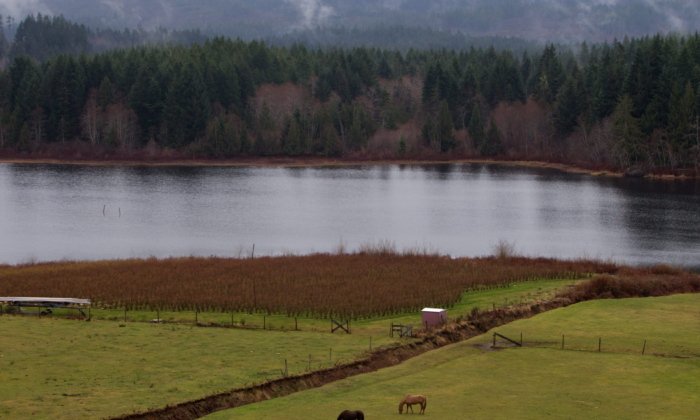BC Farmers Allege Groundwater Use Regulations Jeopardize Food Security
Some B.C. farmers have expressed shock after being ordered by the Ministry of Forests to shut down their wells, which has resulted in a cutoff of their groundwater supply. This decision puts their livelihoods at risk and threatens food security. The order was issued because certain farms and businesses operate in watersheds that have been experiencing extreme water shortages and were found to be operating without a groundwater license, which was a requirement as of March 2022. The enforcement of this order escalated due to drought conditions and increased measures to conserve water implemented by the province.
Many small farming operations claim they were unaware of the license requirement and are now concerned about the potential impact on their businesses. The Water Sustainability Act was introduced in February 2016 to update strategies for protecting streams, aquifers, and managing water sustainably. The act also included the requirement for users of groundwater for non-household purposes to apply for a water license. The deadline for applying for the license had been extended multiple times and by March 2022, only 7,711 applications had been received, accounting for only 40% of estimated non-domestic groundwater users.
In Courtenay on Vancouver Island, around 50 local businesses and farms received water cease-and-desist orders, including two nurseries. Some farmers feel that independent farmers are being deliberately targeted by the government and compare the situation to the Great Irish Potato Famine. One farmer, Brad Chappell, who owns a cattle ranch, registered his well by the deadline but was informed that drawing water from the Tsolum River or the aquifer in that area would result in hefty fines due to fish population protection. The prolonged drought has caused a severe hay shortage and increased prices, leading some farmers to sell their animals due to the inability to afford feed.
Some farmers, like the Ehrlich family who run a biodynamic farm, resorted to purchasing a water cistern and trucking in water to continue their operations. They currently supply 50 families a week through their community-supported agriculture program. However, if they had to pay for water, their farm would no longer be financially viable. The Ministry of Forests states that enforcement is a last resort and decisions are made considering the impact on farmers and their businesses, citing severe drought conditions and the risk to salmon and trout populations.
Critics, such as Sonia Furstenau, Green Party leader and MLA for Cowichan Valley, argue that the provincial government failed to adequately inform and reach those affected by the new requirements. They believe that a better approach would have involved working with the community rather than implementing disciplinary measures. Some farmers claim to have submitted applications but were still issued enforcement orders. The BC government has declared a widespread drought in the province, with most water basins at drought level 4 or 5, and a state of emergency has been declared to address wildfires.
While water conservation has long been practiced by Vancouver Island residents, some question the need for additional measures. However, others have observed changes in well-water levels and recharge rates, supporting the need for action. A new water sustainability planning process is being undertaken to manage and allocate water throughout the Koksilah watershed, involving government collaboration and input from the community. Food security is a priority, but with limited water supply, decisions must be made about allocation.
In May, the B.C. government announced plans to invest over $200 million in food security to improve access to affordable, local food. Some argue that the government should prioritize supporting local farming by ensuring access to water and providing funding for water collection infrastructure. Cornelis van Kooten, an economics professor, believes that authorities should have done more to improve water storage and supply in preparation for these situations, blaming government failures in building adequate and safe water sources to meet the needs of a growing population.
Source link




